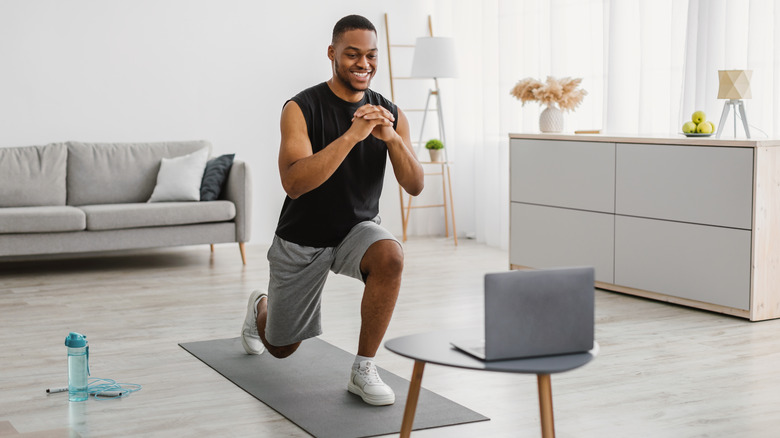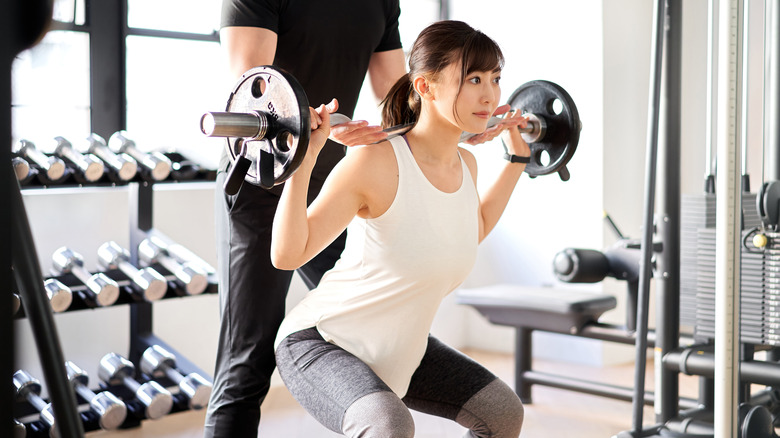Are Squats And Lunges Actually Bad For Your Knees?
Squats and lunges are two basic exercises that are found in most workout routines. While these increase mobility and build strength in the lower body, they can cause knee pain to flare up in some people. Does that mean that these exercises are bad for your knees? Here's what you should know.
According to Dr. Jordan Metzl, a sports medicine physician and fitness instructor, squats and lunges actually help you have less knee pain in the long run. "A lot of patients come to my office with achy knees and think they can't lunge and can't squat," Dr. Metzl told NBC News. "But they actually should, because the stronger the muscles, the less achy those parts are."
According to Dr. Metzl, the best way to perform a lunge is to start with your feet hip-width apart. Take a step forward with your right foot and at the same time, lower the rest of your body until your left knee almost touches the floor. At this point, your right thigh should be parallel to the floor. Hold for a second and then return to starting position. Your right knee should not go past your toes. If it does, you need to step out a little further or improve your form.
Proper form is crucial when exercising
Squats and lunges are not bad for your knees as long as the exercises are performed correctly. Just like lunges, squats can improve knee pain and overall performance when incorporated into your fitness routine. "Squats are not inherently bad for the knees at all and are one of the most functional moves we humans perform," Lara Heimann, physical therapist and founder of LYT Yoga, told Byrdie. "From the time we are toddlers throughout our lifetime, we will squat for a variety of reasons and purposes."
According to Byrdie, it is important that when you perform squats, you "focus on keeping your spine neutral and executing the move from your hips" to avoid injury. "When hips flex well, the knees will follow suit with flexion and the squat should be performed with ease," Heimann said. "If the hips don't flex well and/or the movement happens more at the spine, the knees can take excessive loads that can create compression and discomfort and potential injury down the road."
If you are experiencing consistent knee pain when performing lunges or squats, book a session with a personal trainer. They can analyze your form and make sure you are performing the exercises correctly. If you still have pain after that, visit your doctor. You may have an underlying injury that is causing your discomfort.


